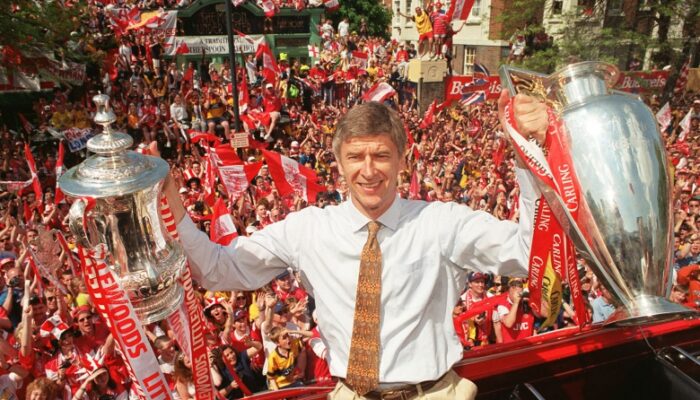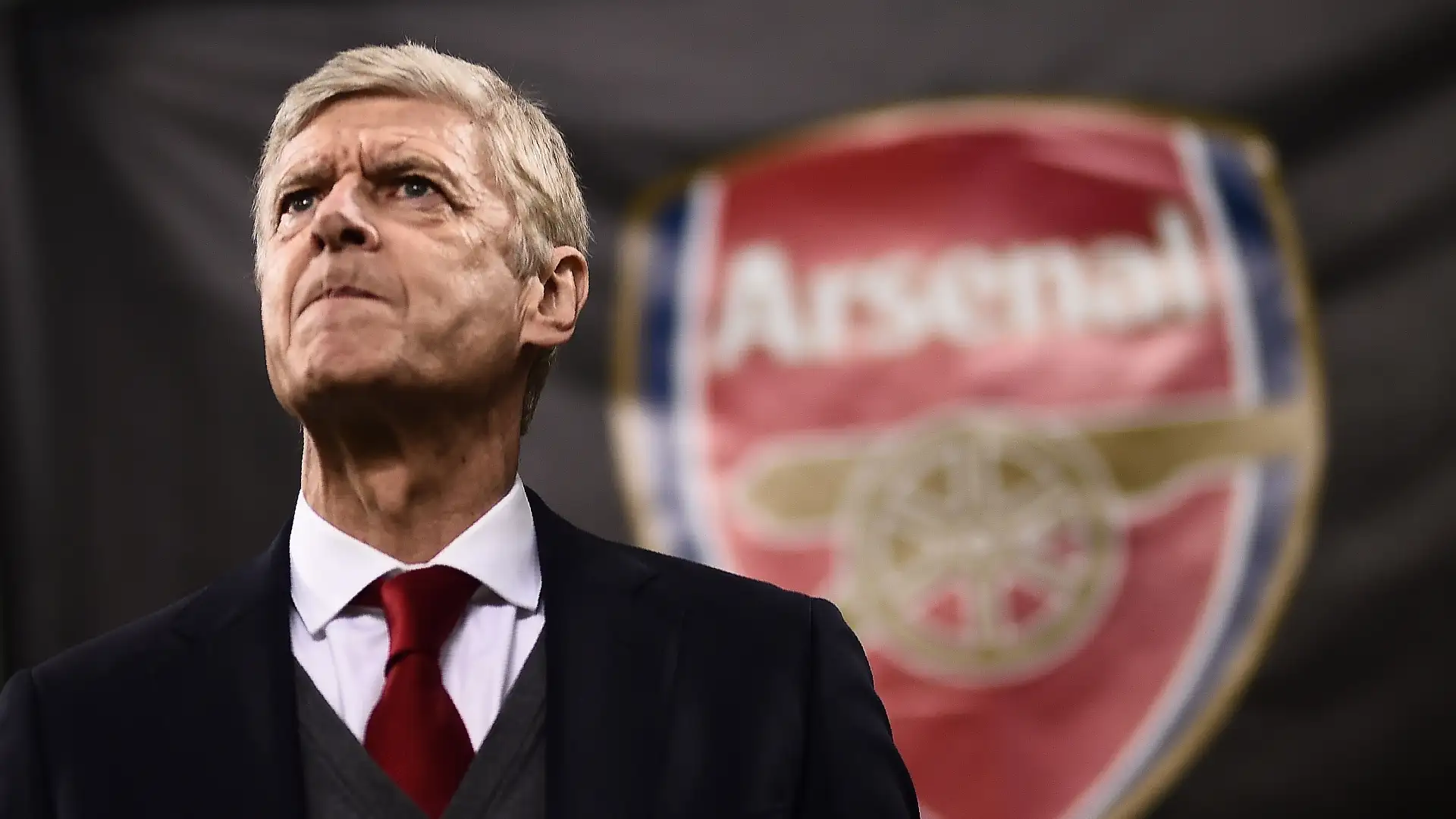Uzone.id – On 1 October 2016, Wenger celebrated 20 years as Arsenal manager. Yes, Wenger has managed Arsenal since 1996.
Wenger’s appointment was confirmed on 28 September 1996. However, according to arsenal.com, the French manager’s first day working as Arsenal manager was October 1, 1996.
Wenger’s appointment as Arsenal’s new manager at that time attracted quite a bit of British attention. Unlike now, where his name is so well known throughout the world, at that time not many people knew about Wenger’s exploits.
Daily Evening Standard even to the point of giving the title “Arsene Who?” when Arsenal officially introduced Wenger as their new manager.
The motive behind Wenger’s appointment as Arsenal’s new coach at that time was not because he was similar to the Arsenal coach he replaced, Bruce Rioch. Allegedly, Wenger’s election dispelled rumors that Johan Cruyff was Rioch’s replacement because of Wenger’s close relationship with vice-chairman Arsenal at that time, David Dein, the two of whom met when Arsenal faced Queen Park Rangers in 1988.
Before handling Arsenal, Wenger had just won the J-League Super Cup with Nagoya Grampus. At that time, it was Wenger’s second season as a coach in Japan. However, with the addition of the best coach in the 1995 J-League, that was enough for Dein to appoint him as Arsenal’s new coach.
Arsenal’s captain at that time, Tony Adams, had doubts about Wenger’s capabilities. Despite his achievements in bringing AS Monaco to win Ligue 1 1987-1988 and the Coup de France in 1990-1991, Wenger is unfamiliar with European football, especially English.
“At first, I thought, does this Frenchman know football? He wears glasses like a school teacher,” said Adams as written in The Guardian. “Then, can he speak English?”
But at that time Adams should not have had to worry about Wenger’s language skills. In reality, this manager who was born in the city of Strasbourg is fluent in five European languages, and can also speak Japanese.

Even so, this made fun of Sir Alex Ferguson, who at that time was still managing Manchester United. “They say he [Wenger] is a clever man, right? Speaks five languages. I have a 15-year-old boy from Ivory Coast who also speaks five languages.”
Doubts about Wenger at that time came from all directions. Even at that time, there was still an opinion that the Premier League could only be won by a manager from Britain. This assumption arises because foreigners do not understand British football culture.
Wenger is of course under great pressure for this assumption. Moreover, Arsenal, who at that time had only won the Premier League 10 times, was always led by a British manager. It is also predicted that he will not be as successful as George Graham, the Scottish manager who led Arsenal to seven trophies, including the UEFA Cup Winners Cup.
“Arsenal might be a little crazy by appointing me who has no name, is a foreigner, and doesn’t have a good history. But they have to be like that, maybe not crazy, but brave,” said Wenger in 2009.
The gamble turned out to pay off. In their second season, Arsenal managed to win the English Premier League or Arsenal’s 11th league champion. In 2002 and 2004, Wenger then added two other English Premier League trophies, with a record that has yet to be broken: going undefeated throughout the 2003-2004 season.
Wenger’s success could be said to be a new era for the English Premier League. Because of the presence of successful ‘foreign managers’ in England, many English teams began to bring in foreign managers. Foreign managers are now starting to flock to the English Premier League.
Now, even though Wenger only won three Premier League trophies, six FA Cup trophies, and six Charity Shield trophies, Wenger is still a figure who stands on the sidelines when Arsenal plays matches. Yes, when MU supporters started to get to know the figures of David Moyes and Louis van Gaal after Sir Alex Ferguson, Arsenal supporters still had high hopes for the coach nicknamed The Professor This.
Regardless of the good or bad results received by Arsenal, who has been with Wenger for more than 1000 matches, don’t ever dare hope that Arsenal’s longest-serving and most successful manager will be dismissed (his contract expires at the end of the 2016/2017 season). Because it seems that it will only really happen if God and Wenger themselves will.













